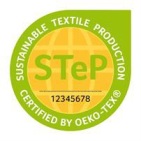
As of 1 April 2015, Oeko-Tex has revised requirements applicable for the certification of environmentally friendly and socially responsible production facilities in accordance with STeP by Oeko-Tex.
“In the future, production sites certified in accordance with STeP must comply with new criteria relating to their waste water,” Oeko-Tex said in a press release.
As per the new parameters, PFOA will have a limit value of 50 µg/l, PFOS 10 µg/l, Nonylphenol (AP) 0.1 µg/l, Octylphenol (AP) 0.3 µg/l, Nonylphenolethoxylate (APEO) 1 µg/l and Octylphenolethoxylate (APEO) 1 µg/l.
“With immediate effect, chapter 4.5.13 of the STeP standard requires all employees to comply with ethically correct behaviour,” the German textile testing agency said.
Specifically, this includes that companies must provide their employees with a written Code of Conduct which defines the ethical principles of the company and lists corresponding specific directives.
Oeko-Tex will establish a neutral point of contact for employee complaints from STeP certified production sites.
With regard to the purchase of feathers and down used in bedding or clothing manufacturing, STeP certified companies are required to obtain their raw materials from suppliers who can prove they do not adopt practices such as live plucking and or forced feeding.
Oeko-Tex recommends that companies obtain proof from the suppliers by means of independent evidence such as the Responsible Down Standard (RDS) or comparable statutory certifications.
The STeP criteria for the company area of ‘Social Responsibility’ has been modified to exclude the worst forms of child labour and STeP certified companies must in the future provide evidence of compliance with ILO standard C182.
If the employees of STeP certified companies receive additional donations from their employers, it must be clearly documented.
Medical investigations required by law, for example, HIV tests, are not categorised by the STeP standard as discriminatory, but must be documented and monitored.
All forms of slavery and forced labour, such as Sumangali which is practiced in India, are categorically excluded.
In addition, workers and salaried employees may use the toilets, drink water, and take a break at any time within the extent prescribed by law without fearing any disciplinary action.
Banned processes that have a very negative influence on the environment and occupational health and safety will now be listed in Appendix D4 of the STeP standard of banned chemicals and processes.
Two new processes have also been included in the list of excluded processes one of which is sandblasting for the treatment of jeans and other articles.
Excluded from the ban are closed systems, provided that the dust emissions at the workplace do not exceed the limit value specified in Appendix G07 of the STeP standard.





